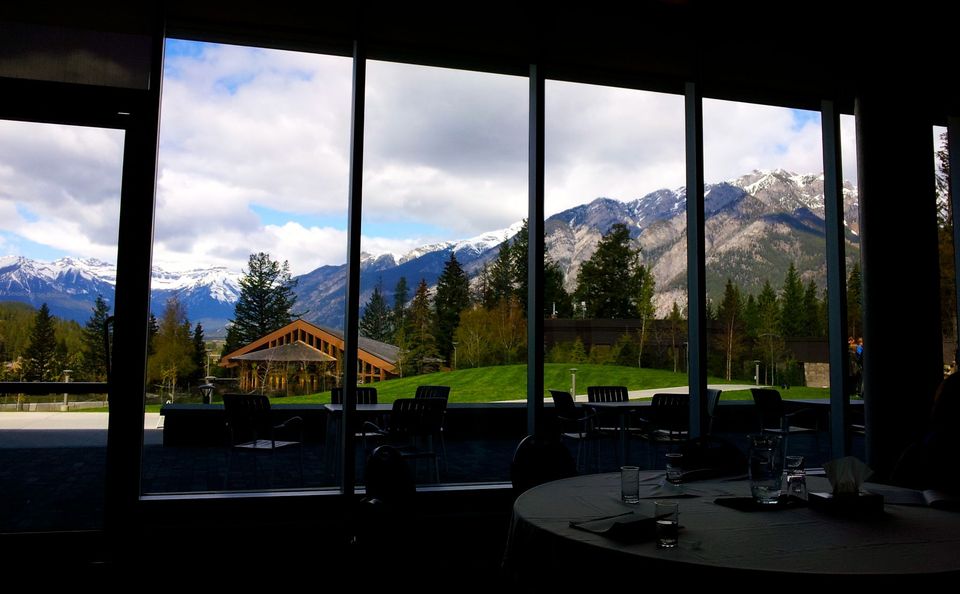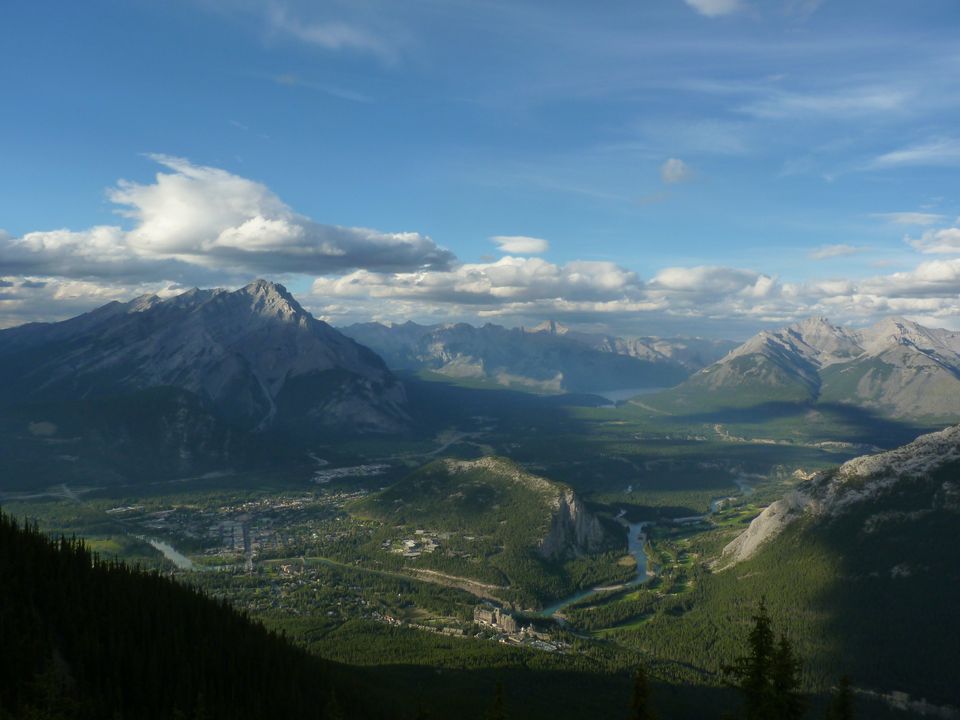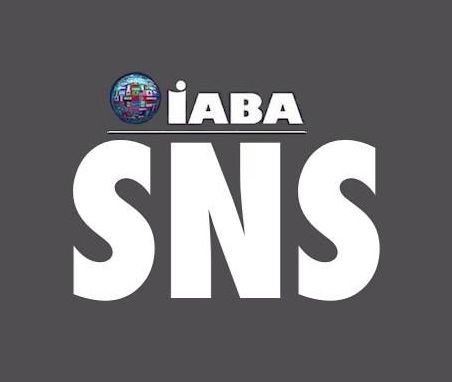Conversations
- The IABA SNS Blog
Life Writing in the Canadian Rockies

View from Banff Conference Centre
This brief response serves to supplement Seraphima Kennedy’s engaging recap of this year’s conference in sublime Banff with a focus on the graduate student experience. The 9th IABA conference was an exciting and productive event for many student attendees. Established professors were generous with their feedback and advice and the social climate was welcoming and relaxed; during down time, many students and new scholars felt comfortable socializing with experienced authors and professors as well as one another. It was clear from the start that grad students are valued participants in the life writing community.
Not only did Julie Rak, Eva Karpinski, Linda Warley, and Laurie McNeill secure grant funding that made it possible for many of us to attend, they also generously arranged a student and new scholar workshop, held on the first day of the conference. At this workshop, experienced scholars presented on publishing and professionalization, grad students shared and received feedback on how they presented their projects in brief “elevator pitches,” and networked with one another for future collaboration. The overriding message was that this generation of emerging scholars must embrace the need, and opportunity, to re-orient and re-make the academic career. Sidonie Smith, for example, discussed setting goals for writing and publishing in order to build a dynamic career after graduation. She described post-PhD life as undergoing significant changes and brought attention to the changing nature of academic publishing in the humanities, including the growing prevalence of open-access publication venues. She encouraged attendees to be less cautious and more innovative, and to stay focused on getting exciting work out into the world.
Following Smith, other presenters urged students to pursue international projects and funding opportunities, and also consider important work beyond the academy, such as other forms of public service, alternative publishing, and non-profit work. Lisa Quinn and Aimee Morrison urged creative approaches to the dissertation and to see it as a process of self-discovery and professionalization. Additionally, the workshop offered strategies for using social media to facilitate networking, research discoveries, and conversation with colleagues. For students pursuing academic positions, workshop presenters also stressed the importance of innovative and passionate pedagogy.
The workshop was not the only space through which new scholars found mentoring and fellowship. Experienced scholars were generous with their time and advice throughout the conference. Cindy Franklin, in particular, was a kind and helpful mentor and colleague for many of us, encouraging us to engage the sessions despite concerns that our work and experiences might not seem to intuitively fit with the field’s primary conversations. And there was much to engage. From human rights to comics to settler colonialism, panel discussions brought to view a challenging range of texts. To hazard an umbrella term for these inquiries, we might suggest that many engaged with questions of space. Papers investigated relationships between space and embodiment, and the types of writing these relationships produce. Projects theorizing spaces of occupation and restricted mobility, digital life and data collection, slippages between life and death, memory work through alternative abilities and illness, translating human bodies into visual representations, and witnessing struggle and abject violence from within and outside institutions generated critical conversation about the politics, ethics, and community contexts of life writing. Papers also raised questions of materiality, anonymity, and access in conjunction with and opposition to new media, and in relation to creative writing and art practice. Additionally, there seemed to be an increasing interest in life writing’s intentional and unintentional social and political effects, as well as the tensions and contradictions of life writing as political praxis. Scholarship on and by indigenous writers foregrounded the need for critical approaches to these and other spaces of struggle, calling for critical histories and methodologies. See Seraphima’s thorough recap for more of these themes and questions.
What was not covered was also evident. While we recognize that Banff’s gathering was relatively small, we noticed the somewhat limited linguistic and geographic diversity of the subjects presented. For example, the indigenous voices were primarily from North America and Australia; voices from Latin American, African, and Asian populations were predominantly those of immigrants who are now in Europe, Australia, and North America, or those writing in European languages. Eastern European and Russian texts also did not figure prominently. The need for students and new scholars to push linguistic and geographical boundaries and expand scopes of study, as well as reach out to new scholars working in underrepresented regions, is clear.
These limitations noted, the conference offered several generative points of departure for new scholars. It called us to consider the ways the community and political projects many of us pursue deploy life narratives for social change. As Linda Warley put it in her closing comments, “How do we turn autobiography as rhetorical action into social action into political action? What do we do with what we know?” And the conference made clear that ethical questions concerning our relationships to our materials, subjects, topics, and primary texts, as well as our research, collaborative projects, and personal narratives remain central. How do we understand the functions and manifestations of power in our critical and creative processes as we work with art and social justice movements, and with politically disadvantaged communities? For these questions, the conference location, with its history of settler colonialism and internment and the region’s contemporary struggles over academic freedom and higher education privatization, proved not only breathtaking but compelling, a spur to critical thought.
Another critical takeaway was the importance of exploring a greater variety of disciplines, such as law, psychology, history of science, anthropology, economics, and public health, to broaden life writing’s scope beyond English and Comparative Literature. More policy-oriented and pragmatic frameworks would also address the scholarship diversity and access concerns we have mentioned. This need for interdisciplinary fellowship as well as Banff’s welcoming and productive environment prompted the emerging Life Writing Student and New Scholar Network (SNS), which is affiliated with IABA and dedicated to collaboration and community building. A primary motivation behind this network is to address and disrupt the class stratification that often occurs in relation to conferences. The network recognizes that it is especially difficult for students and new scholars to attend conferences and thus provides an open platform for newer scholars everywhere to post and promote their work and projects.
As this conference amply demonstrated, ours is a scholarly and professional landscape full of critical questions that we can and must take a role in answering. Since Banff, graduate students have been seeking and creating new avenues and methods for joining the discourse. The group hopes that the network will make life writing projects and scholarship more accessible for new scholars from a variety of disciplines and establish an ever-more diverse community of interlocutors. It understands life writing’s values to be compatible with those of many political and community projects and is trying to make the connections between this scholarship, art practice, and community work even more visible.

Alex Winder is a PhD candidate in History and Middle Eastern and Islamic Studies at New York University and an associate editor of Jerusalem Quarterly.
Elizabeth Rodrigues is a PhD candidate in English Language & Literature at the University of Michigan, specializing in comparative approaches to multiethnic U.S. literatures.
Maria Faini is a PhD candidate in Comparative Ethnic Studies and Critical Theory at the University of California, Berkeley and co-executive editor of nineteen sixty nine: an ethnic studies journal.


